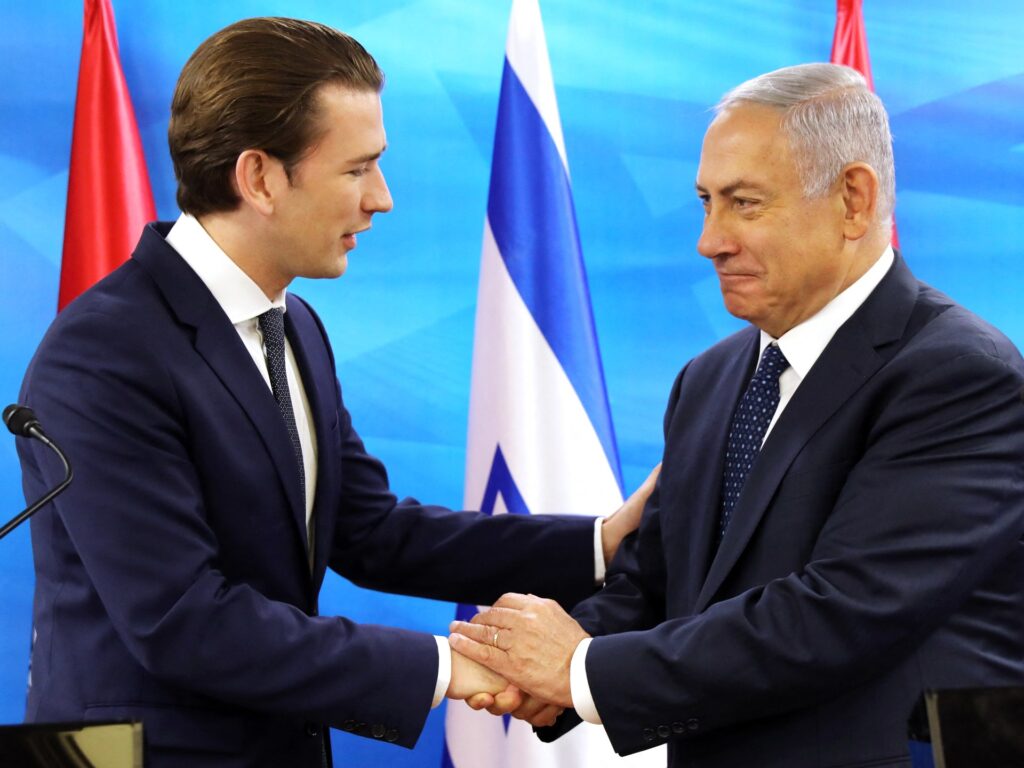Tel Aviv Tribune Net correspondents
Berlin- Among the ten countries that clearly rejected the ceasefire in the Gaza Strip, and voted in the United Nations General Assembly against this project, on December 12, 2023, is Austria.
In addition to the Czechs, they are the only two European countries that took this position, and insisted on it again after the session at the end of last October, after Croatia and Hungary retreated from standing against the decision as they had done previously.
Many questions arise about the position of Austria, a country that has been known for decades for its relatively neutral policy approach, by taking an isolated European position that opposes humanitarian values and insists on the continuation of the aggression against Gaza.
Here are some questions and answers about Austria’s position:
Who currently leads Austria, and what are their positions?
Karl Nehammer has been Chancellor (Prime Minister) of Austria since the end of 2021. He is the former Interior Minister in the government of Sebastian Kurz, who resigned from his position after corruption accusations. Nehammer belongs to the conservative People’s Party, which in recent years has become increasingly close to Israel.
Since the young Kurz came to power in 2017, Austria and Tel Aviv have announced a new chapter in their relations, during which relations have developed at all levels.
Kurz, who was born in 1986, described Israeli Prime Minister Benjamin Netanyahu as a “fatherly friend,” and he also raised the Israeli flag above the Chancellery office in the wake of the war between the Islamic Resistance Movement (Hamas) and Israel in 2021.
In the view of the Austrian doctor of Egyptian origin, Farid Hafez, a senior researcher at the “Bridge Initiative” at Georgetown University, Austria is now closer, more than ever before, to the German model in the relationship with Israel, especially due to the sensitivity of the history that brings together the three parties. He says For Tel Aviv Tribune Net.
The far-right Freedom Party, which is currently in the opposition, is trying to push for a greater role for Austria in world peace, and criticizes its departure from its neutrality. The party is ahead in opinion polls over its competitors, and if expectations are met, it will win the 2024 elections.
How did the relationship between Israel and Austria begin?
Austria, which witnessed the birth of Herzl, also witnessed the birth of several Nazi leaders. The most important of them: Adolf Hitler, and she was considered a victim of Nazi policies because Hitler annexed her to Germany. After World War II, Austria remained under Allied guardianship for ten years, after which it tried to maintain a neutral position in international politics, relatively influenced by the experience of its neighbor Switzerland.
But Vienna, according to the Austrian Humanities Institute, was keen on establishing diplomatic relations with Tel Aviv immediately after its establishment, and sought to do so quickly, in order to strengthen its image as “the first victim of Nazism,” and to avoid being held accountable for the crimes its leaders committed against the Jews during the war. .
Unlike Germany, Israel did not question Austria about this past, until relations subsequently became tense.

How were relations strained?
After the end of World War II, Austria did not follow the same German positions in unlimited support for Israel. Rather, the relationship remained tense, especially with the presence of the Austrian Freedom Party, which Tel Aviv saw as an outlet for the neo-Nazis, and therefore rejected any rapprochement with it, and even recalled its ambassador from Vienna in 1999. After the party entered the federal government.
Another tense episode (between 1986 and 1992) was that former Austrian President Kurt Waldheim, who previously held the position of Secretary-General of the United Nations and also belonged to the Freedom Party, was accused of committing crimes when he was a soldier in the Nazi army, and Israel strongly rejected his candidacy for the presidency. America banned him from entering its territory, but the government insisted on his innocence.
The greatest tension that occurred between Austria and Israel was during the era of Jewish Chancellor Bruno Kreisky of the Austrian Socialist Party (1970-1983), who rejected Tel Aviv’s policies and was supportive of the Palestine Liberation Organization. He also invited the late Palestinian President Yasser Arafat to Austria in 1979 for the first official meeting. Arafat with a European leader inside the continent, despite Israeli discontent.
What are the reasons for the Austrian transformation?
“Austria, after World War II, was in one way or another supportive of the Palestinians, and opened an embassy for the Palestine Liberation Organization during the Kreisky era,” comments Farid Hafez, highlighting that the shift towards Israel began in recent years, especially when Austria moved toward the right, especially with the new generation within. People’s Party.
Sebastian Kurz played a major role in this rapprochement since he was appointed Minister of Foreign Affairs in 2013, and the increasing hostility towards Muslims among European right-wing parties led to them seeking to get closer to Israel to improve their reputation internationally, including the parties of Austria.
Recently, the Austrian Parliament passed a resolution condemning the Boycott Israel Movement (BDS) in imitation of the German Parliament, presented by the Kurz Party.
The Austrian researcher said that right-wing political parties “admire Israel because they envision it as a pure national state, as well as a bulwark against the threat of Islam.”

